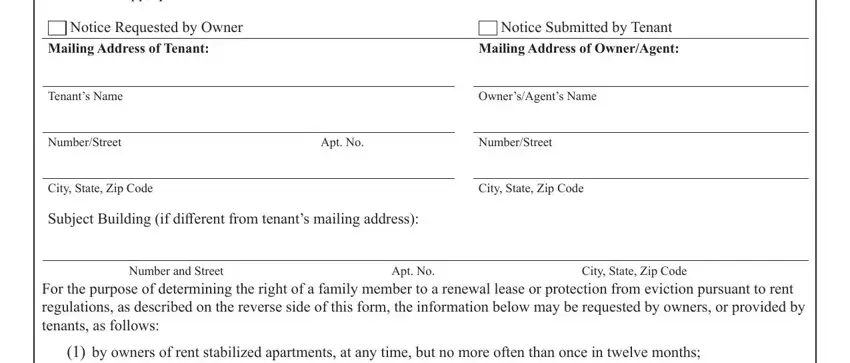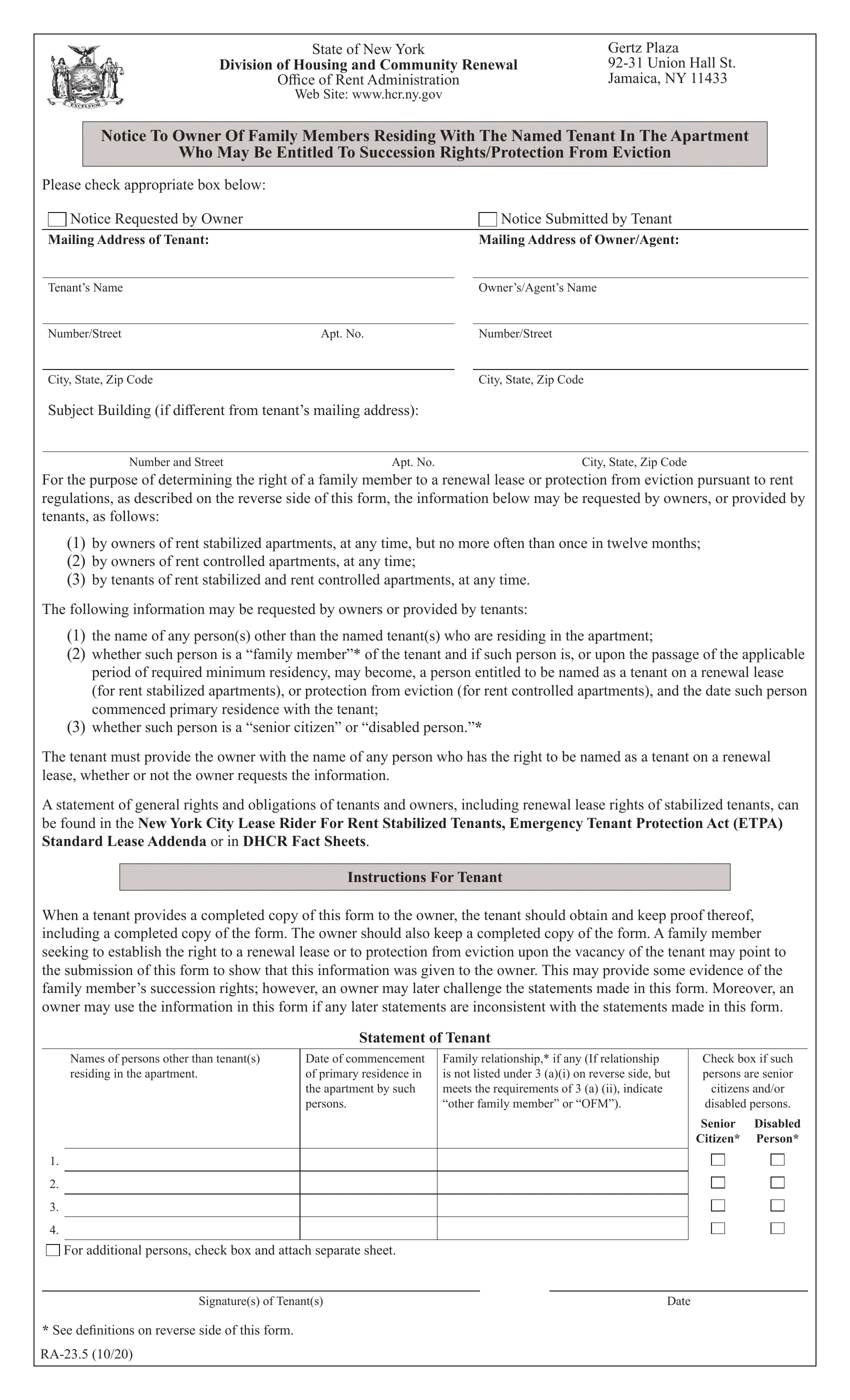Family Member’s Renewal Lease and Eviction Protection Rights
1.For rent-stabilized and rent-controlled apartments throughout New York State, except where occupancy is restricted by income limitations pursuant to federal, state or local law, regulations or other governmental agency requirements, where a tenant permanently vacates an apartment, any “family member” of the tenant as defined below shall have the right
to a renewal lease (rent stabilization), or to protection from eviction (rent control), provided that such family member has resided with the tenant as a primary resident in the apartment for 2 years (1 year for “senior citizens” or “disabled persons”) immediately prior to the permanent vacating of the apartment by the tenant, or from the inception of the tenancy or commencement of the relationship, if for less than such periods.
2.For all housing accommodations, the minimum residency requirements will not be deemed to be interrupted by any period during which a family member temporarily relocates from the housing accommodation because he or she:
(I)is engaged in active military duty;
(II)is enrolled as a full-time student;
(III)is not in residence at the housing accommodation pursuant to a court order not involving any term or provision of the lease, and not involving any grounds specified in the Real Property Actions and Proceedings Law;
(IV) is engaged in employment requiring temporary relocation from the housing accommodation;
(V)is hospitalized for medical treatment; or
(VI) has other reasonable grounds that shall be determined by the DHCR upon application by the family member.
3.Definitions:
A. “Family Member” is defined as:
(I)A spouse, son, daughter, stepson, stepdaughter, father, mother, stepfather, stepmother, brother, sister, grandfather, grandmother, grandson, granddaughter, father-in-law, mother-in-law, son-in-law or daughter-in-law of the tenant (or permanent tenant for New York City rent stabilized hotels).
(II)In addition to such “traditional” family members, for the purpose of renewal lease and eviction protection rights, a family member also includes those persons (nontraditional family members) who have resided with the tenant, as set forth in item 1 above, in a familial relationship based upon emotional and financial commitment and interdependence with the tenant or permanent tenant.
Several factors are considered in determining whether such commitment and interdependence existed between the tenant and family member, and no single factor is solely determinative. These factors are:
—there is longevity to the relationship (this consideration is separate from the required minimum residency periods discussed above, and may include the length of the relationship between the family member and the tenant prior to occupancy of the housing accommodation at issue);
—they have shared or relied upon each other for payment of household or family expenses and/or other common necessities of life; joint ownership of personal and real property, credit cards and loan obligations;
—they have intermingled their finances (for example, joint bank accounts or sharing a household budget for purposes of receiving government benefits);
—they have attended family functions together, or held themselves out as family members to other family members or society in general;
—they have formalized legal obligations with each other (for example, executing wills naming each other as executor and/or beneficiary, or serving as representative payees for purposes of public benefits; granting each other a power of attorney and/or conferring upon each other authority to make health care decisions each for the other; entering into a personal relationship contract);
—they relied upon each other for daily family services (for example, assistance during illness);
—engaging in any other pattern of behavior, agreement, or other action which evidences the intention of creating a long-term, emotionally-committed relationship.
Sexual relationships between tenants and such family members will not be considered as a factor.
B. A “Senior Citizen” is defined as :
A person who is sixty-two years of age or older.
C. A “Disabled Person” is defined as:
A person who has an impairment which results from anatomical, physiological or psychological conditions, other than addiction to alcohol, gambling, or any controlled substance, which are demonstrable by medically acceptable clinical and laboratory diagnostic techniques, and which are expected to be permanent and which substantially limit one or more of such person’s major life activities.





